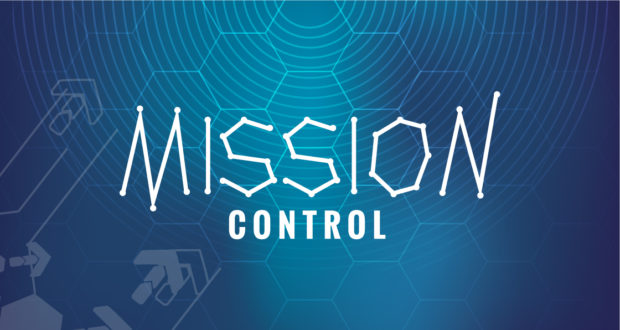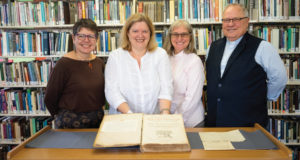Over the course of 2019, I want to unpack a simple mission framework in this column. The framework is represented by four words—Know, Notice, Discern, Act. Having begun with exploring the word “Know”, and connecting mission with discipleship, let’s move on this month to consider the second: Notice
I know I can sometimes get caught up in my own busyness and get around life with my eyes half closed, a little oblivious to what’s going on around me. Maybe, in your worst moments, you’re something like me.
What does it mean to get around with our eyes open? Seeing what’s happening around us? Hearing pain and grief? Spotting successes to celebrate? Observing need and opportunity? I’ve come to wonder whether in fact noticing might just be the most overlooked aspect of mission.
In Luke 13 we read of Jesus at the temple. Among the gathering is a woman who has been captive to illness for years. Eighteen years. Who knows what the back story is, whether her community have tried and failed to help her to health, whether she is shunned? Who knows? In that moment however, Jesus notices her. He notices her captivity, her illness. He notices. He calls her out, heals her and sends her on her way, praising God. The rest of the story descends into an argument about the Sabbath and whether healing qualifies as work, but it’s the noticing part of the story that always captures my attention. Jesus knows God, knows God’s desires for us. He notices the woman. He figures out how he can get involved, and he acts. It’s the whole mission framework laid out in one short story.
The question for us is, of course, how do we go about this noticing? As individual disciples and as congregations, what’s involved in getting around with our eyes wide open to what’s happening in our world? I want to suggest two ways for us to consider.
First, I think noticing can happen in our daily lives, through our conversations and networks of relationships. It can happen through the casual interactions that happen in shops and sporting clubs, offices and classrooms and family lounge rooms dozens of times every week. In each encounter there are tucked away opportunities to notice if we will only open ourselves to them.
Second, I wonder if we could turn our congregational attention to intentional research or “noticing”. We can start by assembling all the data about our community or neighbourhood—who lives here, what challenges do they face, and so on—and then going on to pair that data with opportunities for relationships to develop/emerge. Data alone will rarely inspire action, but in the context of relationship, noticing becomes powerful. The Queensland Synod office has a structured noticing tool called “Stats Have Faces” that’s freely available for congregations who want a little extra assistance in noticing.
If we don’t pay attention, don’t notice what’s around us, there’s some danger that our mission activity can be untargeted or misdirected, or even absent. Alternately, if all we ever do is notice, there’s a risk we get caught up with all that is wrong with the world, perpetually wondering when somebody (else) will do something about it all. Noticing must lead to discerning, and discerning to acting. We’ll come back to those over the rest of the year.
For now the question is this: What are you noticing in your community? Among your neighbours? How deliberately are you noticing where God might be calling you to be at work?
Next time: Discern!
Scott Guyatt
Scott Guyatt is the Queensland Synod’s Director of Mission Strategy.
For more information about Stats Have Faces, please visit ucaqld.com.au/statshavefaces
 JourneyOnline
JourneyOnline







